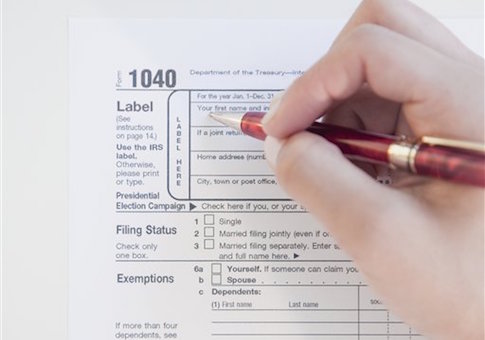IRS tax code totals 2.4 million words and additional regulations total 7.7 million words
by Ali Meyer • Washington Free Beacon
 Americans will spend more than 8.9 billion hours and $409 billion complying with the tax code in 2016, according to a report from the Tax Foundation.
Americans will spend more than 8.9 billion hours and $409 billion complying with the tax code in 2016, according to a report from the Tax Foundation.
“One often overlooked issue in tax reform is complexity,” the report states. “For decades, the tax code has become more and more detailed, with thousands of additional pages of statutes, regulations, and case law. This added complexity imposes a real cost on the U.S. economy.”
The Internal Revenue Service (IRS) tax code in 1995 totaled 409,000 words and since then it has increased to a total of 2.4 million words.
In addition to the tax code, there are 7.7 million words of tax regulations and there are 60,000 pages of tax-related case law, which accountants and tax lawyers use to decide how much their clients must pay.
According to the report, Americans will spend more than 8.9 billion hours complying with the tax code and most of that time will be spent on business and individual income tax returns, which are estimated to total 2.8 billion and 2.6 billion hours, respectively. The 8.9 billion hours spent complying with the tax code equates to 4.3 million Americans working full-time and spending all of their time on tax return paperwork.
The report finds that the 8.9 billion hours spent on taxes equates to $409 billion each year in lost productivity.
“A business owner who needs to file a complex tax return each year may hire an accountant or tax lawyer to do it,” the report explains. “This tax professional may cost $70,000 a year or more. This is $70,000 that this business owner cannot devote to purchasing equipment or hiring workers.”
According to the Tax Foundation, business income taxes cost $147 billion to comply and individual income taxes cost another $99 billion every year.
“Time is the most valuable thing we have, and we should not be forced to waste it complying with IRS forms,” said Tax Foundation president Scott Hedge. “Congress needs to keep this in mind as they move forward with tax reform over the next year. In addition to fostering economic growth, we need reforms that ease the burden of time on taxpayers. I think that’s something we can all get behind.”
The IRS did not respond to requests for comment by press time.